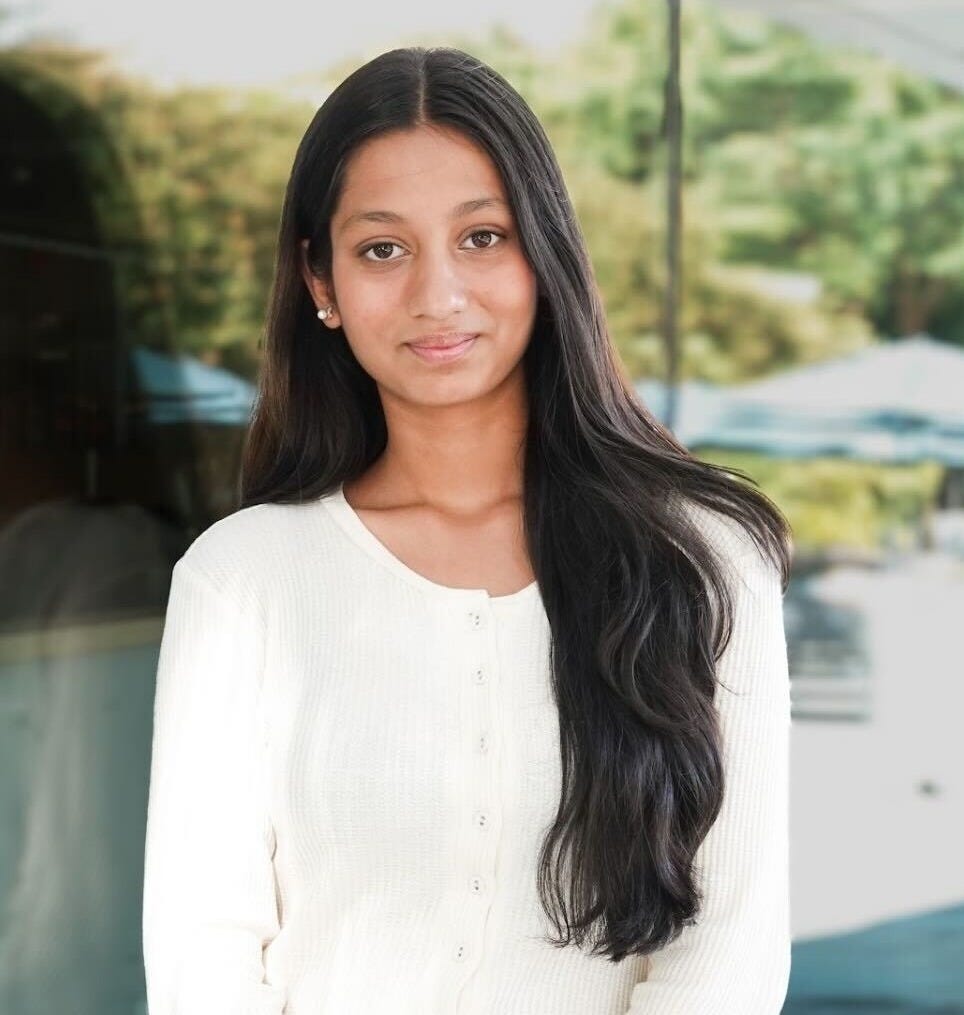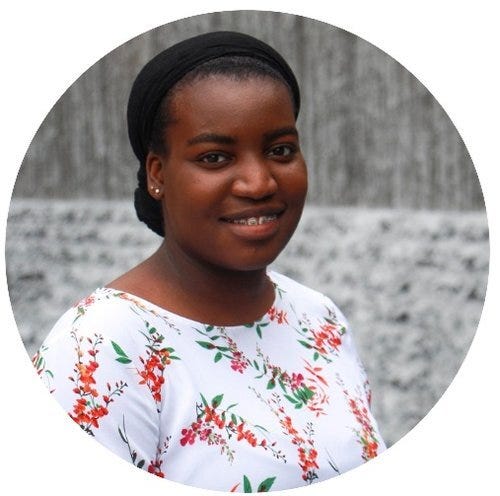Celebrating Paragon’s First Anniversary
In this issue: Paragon becomes a RTYPF grantee, Fall 2024 Fellows present research at a conference, and Summer 2025 applications open
Welcome to the Spring edition of the Paragon Policy Fellowship newsletter! Here’s what the team has been up to since our last issue:
FOR GOVERNMENT PARTNERS: Government Partnership Interest Form
One Year of Paragon: Looking Back at Everything We’ve Accomplished So Far 🎉
Paragon Joins the 2025 Cohort of the Responsible Technology Youth Power Fund
🚨 Summer 2025 Applications Open🚨
Do you want to work at the forefront of tech policy with state and local governments? Applications are now open to become a Summer 2025 Paragon Policy Fellow! For more information, check out our website.
You have until May 9th to apply! Fellows spend ~10 asynchronous hours a week and receive a $500 stipend to work on impactful government projects and can gain access to internal opportunities and a lasting alumni network. To learn more, attend one of our info sessions on April 19th and May 3rd.
Government Partner Interest Form 📣
Do you work for a U.S. state or local government that may benefit from pro bono technology policy work? Do you want to help foster the next generation of public interest technologists? Fill out our interest form here, and we will be in touch!
Paragon’s One Year Anniversary 🎂
Paragon launched its first cohort one year ago! In that time, we’ve provided hundreds of university students an entry point into public interest tech and partnered with 15+ government partners to shape the future of tech policy.
🏛️ Our partners have included the states of Georgia and Montana, the cities of San Jose, Albuquerque, St. Louis, and Boston, and the U.S. State Department.
💵 Paragon has secured $150,000+ in philanthropic funding from partners who believe in our mission and want to empower the next generation of tech policy leaders.
⏰ Paragon’s Fellows have contributed an estimated 14,000 hours to give back to their communities on policy related to AI governance, cybersecurity, digital accessibility, and more!
We're grateful for the students, government and organizational partners, and mentors who have believed in our vision since day one. Thank you for supporting Paragon as we reach greater heights in 2025!
Paragon Joins the 2025 Cohort of the Responsible Technology Youth Power Fund
Paragon is honored to be selected for the 2025 Cohort of the Responsible Tech Youth Power Fund! We have received $63,000 for our efforts in creating a safer and more equitable digital ecosystem. These funds will support the operating costs of our 3 annual cohorts, fund cohort professional development opportunities, and start to stipend Fellows for their impactful tech policy projects uplifting local and state governments. Read the full announcement.
Looking Back on Fall 2024
The Fall 2024 Cohort wrapped up their Fellowship with impressive final presentations this past December. They also enjoyed exclusive discussions with thought leaders including Dr. Tepring Piquado, Executive Director of the National Science Policy Network, and Jake Braun, former Acting Principal Deputy National Cyber Director under the Biden administration.
Read about the fall projects below:
City of Los Angeles, CA - Indigenous Language Access 🗣️: The City of Los Angeles is home to over 220 languages, including the indigenous languages of Q'anjob'al, Zapotec, and K'iche. Paragon Fellows investigated the City’s shortcomings in providing resources in these languages and proposed solutions for how remedies like AI translations can be used responsibly and effectively. The Fellows will be presenting their work at an IEEE conference over the summer.
City of Los Angeles, CA - Digital Accessibility ✅: The Biden White House mandated that all cities make their websites accessible by 2026, yet many cities struggle to allocate resources to meet this deadline. Making a website accessible ensures that people with disabilities—the people who need resources the most—can access them from their government. Paragon Fellows drafted a detailed roadmap to guide the City as it prepares to meet this requirement.
County of Santa Clara, CA - AI Use Case Guidelines 📋: With the explosion of AI, Santa Clara County departments began requesting approval to use AI tools. However, the process to develop guidelines for acceptable and unacceptable use cases was done on an individual basis and was bogged by inefficiencies. Paragon Fellows developed comprehensive yet broad-use case guidelines that will greatly speed up the County’s implementation of AI software.
City of Tempe, AZ - AI Curriculum 📕: The City of Tempe was determined to teach its staff how to use AI in a way that was both safe and productive. The Fellows created a detailed curriculum that the City can develop into full training modules which addressed “What is AI”, “AI Risks”, “AI in Tempe”, and “Practical Steps for Governance”. This curriculum also included guidance for how the City should approach procuring AI tools from vendors.
City of Brownsville, TX - Broadband Accessibility 🛜: The City of Brownsville relied on the Biden administration’s Affordable Connectivity Program to expand internet access. However, once the program ended, the City worried about its ability to continue bridging the digital divide. Paragon Fellows proposed a multi-faceted approach to mitigate the potential losses in connectivity, which included securing additional Federal resources, fostering public-private partnerships, and advocating for policy changes.
State of Georgia - AI Guidelines 📏: The State of Georgia’s Technology Authority (GTA) is responsible for determining the rules for using Generative AI for Georgia’s 40,00+ state employees. Our Fellows worked with GTA and Georgia’s AI Advisory Council to develop the State’s frameworks and policy around this new technology.
A Federal Agency - Supercomputer Usage 💻: The United States government possesses some of the most powerful supercomputers in the world, which have been critical in achieving scientific breakthroughs. Now, as Artificial Intelligence takes center stage, the United States should have an accurate understanding of the power of its supercomputers. Paragon Fellows consolidated data of all US-owned supercomputers, compared their performance in achieving tasks using AI, and analyzed recent changes in resource allocation for supercomputers.
Full project briefs will be updated at www.paragonfellowship.org/projects. We are currently in the middle of our Spring 2025 cohort. For more information about these projects, check back in on future issues of this newsletter!
Paragon @ GovTech Georgia 🍑
Paragon’s organizing team is always looking for ways to showcase the Fellows’ projects. During the Fall cohort, the Georgia Fellows were given the wonderful opportunity to present their research at GovTech Georgia’s Emerging Technology Summit: Data & AI. GovTech is one of the leading organizations covering how governments use technology. They host conferences all over the country, and it was an honor to have our Fellows present there.

We spoke with Sharanya Maddukuri—part of the Fall 2024 Georgia team and current Director of Operations at Paragon—to hear about her conference experience. Here is what she had to say about the conference:
Attending the Georgia Emerging Technology Summit—my first conference—was an incredible experience. One of the moments that resonated with me was Sharon Gai’s keynote address, in which she explored how governments around the world are integrating artificial intelligence into public services. The Deloitte workshop provided an interactive overview of AI implementation, making policy discussions feel more concrete. They also presented Pepper, the humanoid robot—both fascinating and somewhat unsettling. Seeing AI interact so naturally with people was a reminder of just how quickly technology is evolving.
What stood out most were the conversations I had outside the sessions. Educators, technologists, police officers, and detectives shared insights on how AI is shaping their respective fields, from classroom learning to public safety. Hearing such a range of perspectives reinforced my understanding of how complex AI governance is. Nikhil Deshpande, Georgia’s Chief Digital & AI Officer, spoke about AI’s role of artificial intelligence in improving government services. Meanwhile, a panel of state legislators discussed the challenge of balancing innovation with public interest. These discussions underscored the responsibility that comes with AI policymaking.
For me, the conference brought AI policy to life—it was tangible, unfolding through real people, decisions, and impacts in real-time. Coming into Paragon, I didn’t have a deep background in AI or policy. I had questions about AI’s rise, its legal implications, and the gaps in regulation that were already shaping industries.
Paragon gave me the foundation to explore those questions, and the conference showed me the impact of this work beyond research and discussions. Seeing policymakers, industry leaders, and public servants wrestle with the same challenges we had studied made AI governance feel urgent and real. This experience reaffirmed why I joined Paragon and how essential it is in making the field more accessible. When policy is accessible, we hear from more voices—different perspectives that challenge assumptions, refine ideas, and create better solutions. The future of AI shouldn’t be shaped by just the limited few. The best decisions come when more people have the knowledge and opportunity to be part of the conversation.
Check out some of the Georgia Fellows’ work on the Georgia Technology Authority’s website here and here.
Fellow Spotlight 🎙️: This Fellow is Developing Albuquerque’s AI Policy from the Ground Up
Bhoomika discusses her interest in pioneering innovations in AI — in an ethical manner — and how Paragon has opened doors for her early in her career.
Read More > > >
Organizing Team Spotlight 🎙️: Policy Director Bridges Policy Research and Human-Centered Design
Blaire dives into design justice and how Paragon has positively impacted her personal and professional development.
Read More > > >
Tech Policy Reading List 📚
See what our organizing team’s been checking out since the last issue.
Rest of World: The global struggle over how to regulate AI (Christopher Asma, Executive Director)
Usermag: YouTube removes 'gender identity' from hate speech policy (Sofia Rodriguez, Executive Director)
Mitchell Hamline Law Review: Shapeshifting Speech - The constitutional significance of the collapse of "public" speech on messaging platforms (Kaitlyn Cui, Executive Director)
The Fire: AI is new — the laws that govern it don’t have to be (Sharanya Maddukuri, Director of Operations)
Springer: Three lines of defense against risks from AI (Ridhwanlai Badmos, Operations Coordinator)
Tech Policy Press: Truth and Consequences: The Post-Election Regulatory Landscape for Big Tech (Chloe Lau, Director of Partnerships)
The Washington Post: Rural internet program on hold as Musk’s satellites get new consideration (Ahmed Diongue, Partnerships Coordinator)
Time: Social Media Fails Many Users. Experts Have an Idea to Fix It (Blaire Bosley, Policy Director)
The Wall Street Journal: Here’s the iPhone. Here’s the iPhone With Tariffs. (Garv Jain, Media Coordinator)
Paragon Across the Country 🗺️
Some of Paragon’s Executive Directors, Organizing Board, and Fellows will be at research and policy events in the next couple of months. Come connect and say hi!
Science Diplomacy Summit 2025 - Washington D.C. (April 14th–April 15th)
IEEE International Symposium on Ethics in Engineering, Science, and Technology - Northwestern University (June 6th–June 8th)
Our Los Angeles Indigenous Languages Fellows will be presenting their work here. Congratulations to the entire team!
State of GovTech 2025 - Arlington, VA (June 17th–June 18th)
20th Biennial IASC Conference: Regenerating the Commons - University of Massachusetts, Amherst (June 16th–June 20th)
Paragon’s Executive Directors will present the “Paragon Model” at this event.
Thanks for reading until the end! Check us out on LinkedIn and Instagram, and subscribe to our newsletter if you haven’t already.
If there are topics you would like covered in future newsletters or have an opportunity for us to publicize, let us know via this feedback form! 📝
— Contributed by Kaitlyn Cui, Christopher Asma, and Garv Jain







